-
 Bitcoin
Bitcoin $117700
-1.00% -
 Ethereum
Ethereum $4458
-3.91% -
 XRP
XRP $3.119
0.14% -
 Tether USDt
Tether USDt $1.001
-0.02% -
 BNB
BNB $836.6
-1.56% -
 Solana
Solana $189.5
-3.90% -
 USDC
USDC $0.9998
-0.02% -
 Dogecoin
Dogecoin $0.2335
1.29% -
 Cardano
Cardano $0.9642
1.51% -
 TRON
TRON $0.3539
-1.19% -
 Hyperliquid
Hyperliquid $47.41
-1.84% -
 Chainlink
Chainlink $21.92
-3.28% -
 Stellar
Stellar $0.4286
-0.23% -
 Sui
Sui $3.724
-3.29% -
 Bitcoin Cash
Bitcoin Cash $594.8
-0.78% -
 Ethena USDe
Ethena USDe $1.001
0.04% -
 Hedera
Hedera $0.2501
-2.06% -
 Avalanche
Avalanche $23.96
-4.87% -
 Litecoin
Litecoin $119.0
-2.32% -
 Toncoin
Toncoin $3.473
0.82% -
 UNUS SED LEO
UNUS SED LEO $9.596
0.17% -
 Shiba Inu
Shiba Inu $0.00001301
-0.39% -
 Uniswap
Uniswap $11.03
-0.25% -
 Polkadot
Polkadot $3.935
-2.62% -
 Dai
Dai $1.000
0.01% -
 Bitget Token
Bitget Token $4.564
-1.76% -
 Cronos
Cronos $0.1512
-4.11% -
 Ethena
Ethena $0.7306
-1.09% -
 Pepe
Pepe $0.00001087
-2.68% -
 Aave
Aave $300.2
-4.00%
What is the difference between cold storage and hot storage in Ethereum wallets?
Ethereum wallets use hot storage (online, convenient but risky) or cold storage (offline, secure but less accessible); choosing depends on your transaction frequency and risk tolerance.
Mar 25, 2025 at 07:14 pm
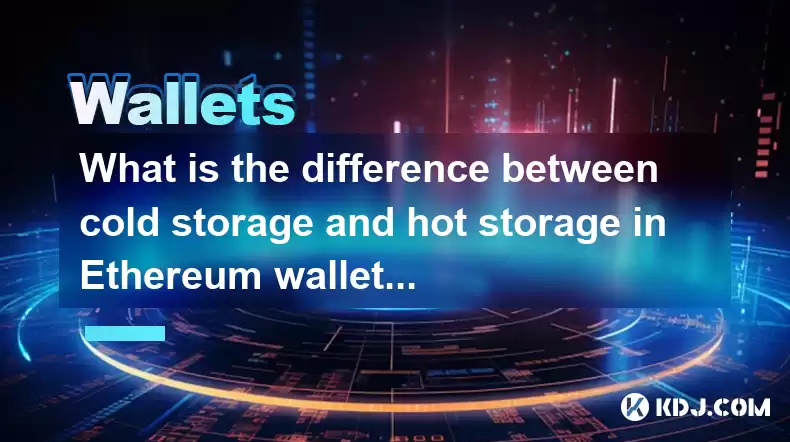
What is the difference between cold storage and hot storage in Ethereum wallets?
Ethereum, like other cryptocurrencies, requires secure storage for your private keys – the cryptographic codes that grant access to your funds. The primary methods for storing these keys are cold storage and hot storage, each with its own advantages and disadvantages. Understanding the differences is crucial for protecting your Ethereum holdings.
Hot storage refers to wallets that are connected to the internet. This provides immediate access to your funds, ideal for frequent transactions. However, this constant online connection significantly increases the risk of hacking and theft. Examples include web wallets, mobile wallets, and software wallets installed on your computer. The convenience comes at the cost of security. Regular updates and strong passwords are paramount when using hot storage.
Cold storage, on the other hand, refers to wallets that are not connected to the internet. This significantly reduces the risk of hacking as your private keys remain offline and inaccessible to malicious actors. Common examples include hardware wallets and paper wallets. While offering superior security, cold storage requires more manual effort for transactions, making it less suitable for frequent trading. The increased security comes with a trade-off in accessibility.
Let's delve deeper into the specifics of each type:
Hot Storage Options:
- Web Wallets: These are accessed through a website and are convenient but inherently less secure than other methods. They are vulnerable to phishing attacks and website compromises.
- Mobile Wallets: These are apps on your smartphone, offering portability and ease of use. However, they are still susceptible to malware and device theft. Strong device security measures are vital.
- Software Wallets: These are applications downloaded and installed on your computer. While more secure than web wallets, they remain vulnerable to malware infections and computer compromises. Regular software updates and robust anti-virus software are necessary.
Cold Storage Options:
- Hardware Wallets: These are physical devices designed specifically to store private keys offline. They are considered the most secure method of cold storage, providing a significant barrier against hacking attempts. They typically require a PIN code for access.
- Paper Wallets: These involve printing your public and private keys onto paper. While extremely secure when stored properly, they are susceptible to physical damage, loss, and theft. Proper storage and multiple backups are crucial.
The choice between hot and cold storage ultimately depends on your individual needs and risk tolerance. If you frequently transact in Ethereum, hot storage might be more convenient, but it necessitates heightened security measures. If security is your top priority and you are less concerned about immediate access, cold storage is the preferred option.
Common Questions and Answers:
Q: Which type of storage is better for large amounts of Ethereum?
A: Cold storage, specifically hardware wallets, is generally recommended for securing large amounts of Ethereum due to their superior security against hacking and theft. The increased security outweighs the inconvenience of offline transactions.
Q: Are hot wallets completely insecure?
A: No, hot wallets are not inherently insecure. However, they are more vulnerable to attacks than cold storage due to their constant internet connection. Using reputable wallets with strong security features and practicing good security hygiene can mitigate risks.
Q: Can I use both hot and cold storage simultaneously?
A: Yes, many users employ a hybrid approach, keeping a smaller amount of Ethereum in a hot wallet for frequent transactions while storing the bulk of their holdings in cold storage. This balances convenience and security.
Q: What if I lose my hardware wallet?
A: Most hardware wallets allow for the recovery of your private keys using a seed phrase. This phrase should be stored securely in a separate, offline location. Losing both the wallet and the seed phrase will result in irreversible loss of access to your Ethereum.
Q: How do I choose a reputable hot wallet?
A: Research thoroughly before choosing a hot wallet. Look for wallets with strong security features, positive user reviews, and a history of security updates. Consider wallets with multi-factor authentication (MFA) and reputable developers.
Q: Are paper wallets completely safe?
A: While offering strong security against digital attacks, paper wallets are vulnerable to physical damage, loss, or theft. They require meticulous storage and backups to mitigate these risks. A single instance of damage or loss results in permanent loss of funds.
Q: What are the risks associated with using a mobile wallet?
A: Mobile wallets are vulnerable to malware infections, device theft, and unauthorized access through compromised devices. Using strong device passcodes, up-to-date security software, and being cautious about downloading apps are crucial.
Q: How often should I back up my cold storage?
A: Backups should be performed regularly for cold storage, especially paper wallets. Consider creating multiple backups and storing them in separate, secure locations. The frequency depends on your risk tolerance, but a yearly backup is a good starting point. For hardware wallets, the seed phrase backup is paramount.
Disclaimer:info@kdj.com
The information provided is not trading advice. kdj.com does not assume any responsibility for any investments made based on the information provided in this article. Cryptocurrencies are highly volatile and it is highly recommended that you invest with caution after thorough research!
If you believe that the content used on this website infringes your copyright, please contact us immediately (info@kdj.com) and we will delete it promptly.
- Kazakhstan's Crypto Leap: Bitcoin ETF and Central Asia's Digital Finance Future
- 2025-08-13 12:45:19
- BlockDAG Presale Blazes Past $371M: Fundraising Frenzy Fuels Crypto Sensation
- 2025-08-13 13:05:21
- Meme Coins: Chasing the 2025 Surge – Which Will Moonshot?
- 2025-08-13 10:25:23
- Bitcoin's Wild Ride: Rally, Pullback, and What's Next
- 2025-08-13 10:25:23
- Bitcoin, Bitmax, and Institutional Demand: A New Era of Crypto Investment
- 2025-08-13 10:45:12
- Solana, ROAM, and Airdrops: What's the Buzz in 2025?
- 2025-08-13 11:35:13
Related knowledge
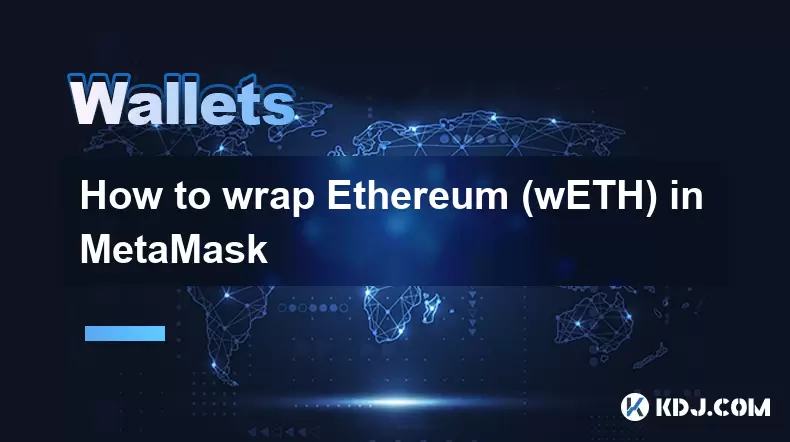
How to wrap Ethereum (wETH) in MetaMask
Aug 13,2025 at 11:36am
Understanding Wrapped Ethereum (wETH)Wrapped Ethereum (wETH) is a tokenized version of native Ethereum (ETH) that conforms to the ERC-20 standard, ena...

How to manage your portfolio in Exodus wallet
Aug 08,2025 at 10:07pm
Understanding the Exodus Wallet InterfaceThe Exodus wallet is a non-custodial cryptocurrency wallet that supports a wide range of digital assets. When...
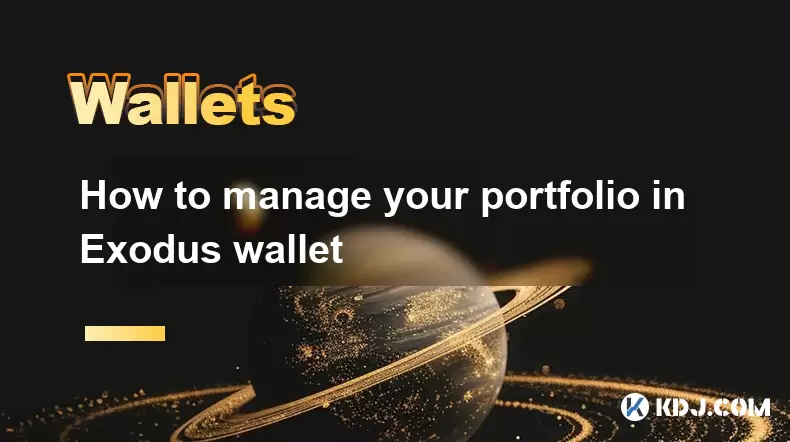
How to manage your portfolio in Exodus wallet
Aug 13,2025 at 11:35am
Understanding the Exodus Wallet InterfaceThe Exodus wallet is a non-custodial cryptocurrency wallet that supports a wide range of digital assets. Upon...

How to reset your MetaMask password
Aug 08,2025 at 01:28pm
Understanding the MetaMask Password Reset ProcessMany users confuse the MetaMask password with the seed phrase or private key, but they serve differen...
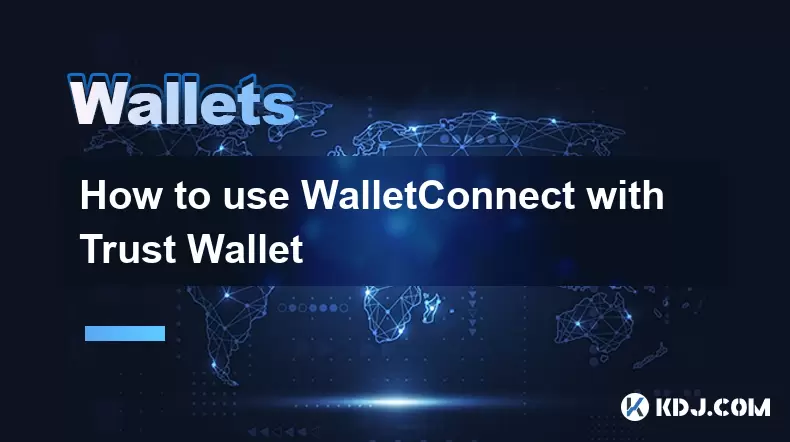
How to use WalletConnect with Trust Wallet
Aug 13,2025 at 01:07am
What Is WalletConnect and Why It Matters for Trust Wallet UsersWalletConnect is an open-source protocol that enables secure communication between dece...
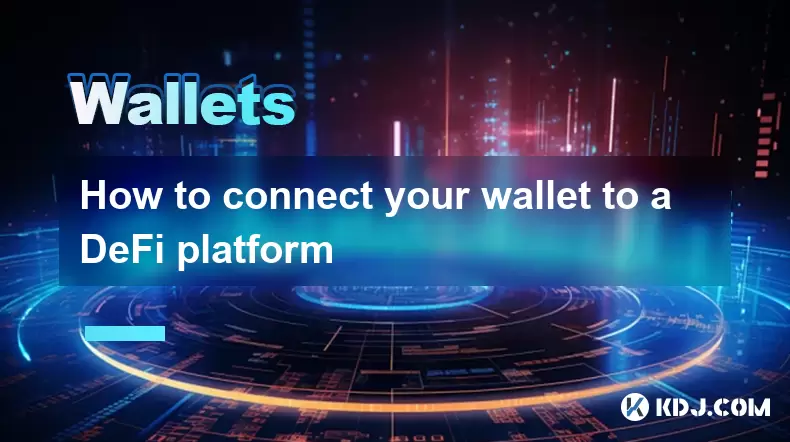
How to connect your wallet to a DeFi platform
Aug 13,2025 at 11:36am
Understanding Wallet Compatibility with DeFi PlatformsBefore connecting your wallet to any DeFi platform, it's essential to ensure your wallet is comp...

How to wrap Ethereum (wETH) in MetaMask
Aug 13,2025 at 11:36am
Understanding Wrapped Ethereum (wETH)Wrapped Ethereum (wETH) is a tokenized version of native Ethereum (ETH) that conforms to the ERC-20 standard, ena...

How to manage your portfolio in Exodus wallet
Aug 08,2025 at 10:07pm
Understanding the Exodus Wallet InterfaceThe Exodus wallet is a non-custodial cryptocurrency wallet that supports a wide range of digital assets. When...

How to manage your portfolio in Exodus wallet
Aug 13,2025 at 11:35am
Understanding the Exodus Wallet InterfaceThe Exodus wallet is a non-custodial cryptocurrency wallet that supports a wide range of digital assets. Upon...

How to reset your MetaMask password
Aug 08,2025 at 01:28pm
Understanding the MetaMask Password Reset ProcessMany users confuse the MetaMask password with the seed phrase or private key, but they serve differen...

How to use WalletConnect with Trust Wallet
Aug 13,2025 at 01:07am
What Is WalletConnect and Why It Matters for Trust Wallet UsersWalletConnect is an open-source protocol that enables secure communication between dece...

How to connect your wallet to a DeFi platform
Aug 13,2025 at 11:36am
Understanding Wallet Compatibility with DeFi PlatformsBefore connecting your wallet to any DeFi platform, it's essential to ensure your wallet is comp...
See all articles

























































































